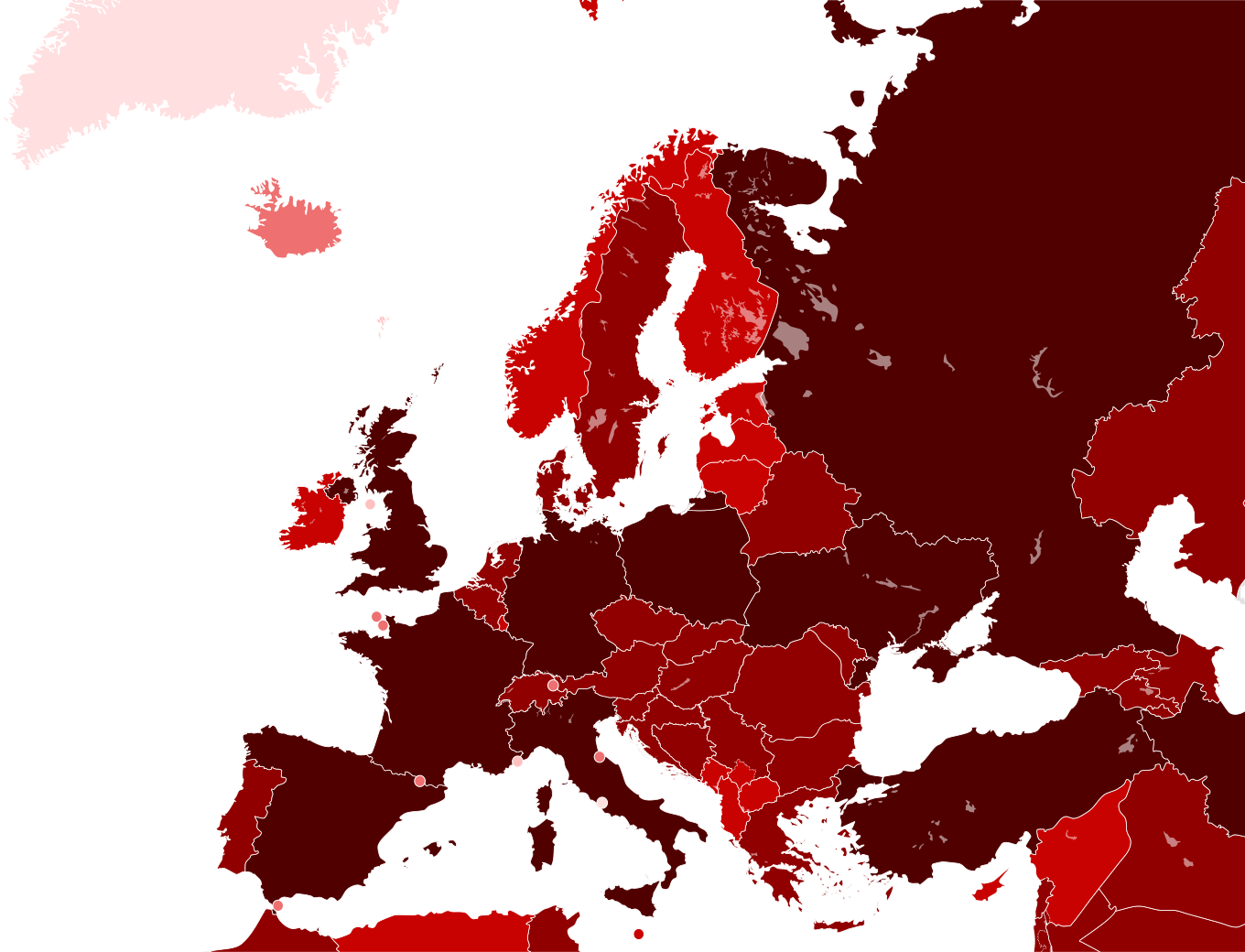
Colosseum in Rome, Italy, Image Credit: David Salik
With the epicenter of deadly coronavirus pandemic now in Europe, the continent – a model of peace and social welfare, and a global hub of tourism over the last half century– now faces one of the biggest challenges to the health and economic well being of its people since WWII.
Some of the biggest EU economies – France, Italy and Spain – are in lockdown and German Chancellor has minced no words about the possibility of the virus affecting as much 70 % of the citizens.
“We have a situation that is very complex,” European Commission President Ursula von der Leyen said as she recently announced the Commission’s new response team to halt the outbreak.
Taking into consideration the ever-increasing death toll due to the virus and the resultant hazards for the economic growth across European countries , the Organization for Economic Co-operation and Development (OECD) has cut this year’s growth forecast for the Eurozone to 0.8% from 1.1% but kept it unchanged for next year at 1.2%.
For the global economy, the organization of the developed nations revised downwards its forecast by half a percentage point to 2.4%.
The OECD has warned that if the impact of the coronavirus proves “longer lasting and more intensive than assumed” in the projections, the global GDP growth could go down to 1.5%, and “could push several economies into recession, including Japan and the Euro area.”

European cities affected by coronavirus mage: Wikipedia with red color density showing the number of cases
The Commission and the ECB have requested member states with fiscal space, especially Germany and the Netherlands, to invest more in various sectors to revive the ailing economic growth.
Italy, the worst-hit country in Europe by COVID-19 disease – that has spread out of China across the globe – has announced a €3.6 billion stimulus, on top of the 900 million aid package already dedicated to addressing the outbreak.
The fast-spreading virus has affected tourism, transport, trade and supply value chain. Conferences continue to be cancelled, including Prowein, one of the largest wine fairs held in Dusseldorf (Germany), while staff fears are also forcing authorities to close institutions and buildings.
Many unprecedented steps appear to have brought the entire continent to a halt. Italy has placed the entire country of 60 million people under quarantine, limiting movement and shutting down public spaces for at least three weeks.
The cancellation of events, and school shutdowns across nations are no longer a surprise as governments grapple with the health crisis. Superstores are running empty of essential food and hygiene supplies on a daily basis.
According to the Corriere della Sera newspaper “the whole of Italy is closed.”
Spain has become the second European country to enforce a nationwide lockdown, ordering its 47 million people to mostly stay in their homes as coronavirus cases surge and the government announced that the wife of the Spanish prime minister had tested positive for the virus.
Norway, Lithuania, Ireland and Austria have closed most schools. The list of closings is changing by the hour.
The largest economy Germany has the fourth largest number of coronavirus infections after Italy, France and Spain and the government is looking at some of the drastic measures to deal with the challenge. And the Germans appear to be ready for any restrictions as a global survey conducted by research firm Ipsos shows that 62% of Germans would support quarantine, if needed.

Civil Protection’s first aid spot in Padua, Italy Image: Amarvudol / Wikimedia
Europe is also facing criticism for its slow initial response that experts say is to blame for the widespread crisis.
Many draw parallels with the sluggish reaction that Germany, the U.K. and France initially came out with during the 1918 Spanish flu pandemic, largely due to fear of hurting the morale of troops fighting the World War I.
But now the biggest concerns center around the health of the people and economic standstill that may deprive many EU member states of the momentum need to sustain health growth rates.
For example in Germany and the Netherlands, several businesses are encouraging employees to stay away from the office.
According to a recent poll of more than 700 Germans by Business Consultancy Strategy 38% of the office workers want to work from home. A third of them prefer to skip meetings, trade fairs and major events in the coming weeks.
Across France, all nonessential businesses — including cafes, restaurants and movie theaters — have been ordered closed indefinitely beginning Sunday except gas stations, supermarkets and pharmacies that would remain open to public.
While 2016 and 2017 represented a huge refugee influx challenge for affluent Western European countries, the current coronavirus crisis appears to be the a case of the worst and most sweeping lock downs of entire populations.
The specter and desperate measures have made Europe look like a continent stopped in its tracks in a way no other event since World War II catastrophe has done.
But thanks to the highly developed economies and infrastructure, Europe is far from the WWII devastation and total collapse, although economic challenges might haunt some countries for years to come.
In contrast, Europe had lost 70% of its industrial infrastructure by the end of the WWII with thousands of cities, towns, factories and offices decimated.
It was only the now-storied U.S. Marshal Plan and a labor force from Turkey, South Asian, Arab and African countries that ultimately recovered the continent from a total disaster.
However, the coronavirus is not something that is destroying the physical infrastructure. It is taking down human beings, the force behind economic development.
In view of the complex nature of the challenge to health and economies of the European nations, the countries and their populations will have a huge challenge to put things back into a higher economic gear.
Another piece of thee challenge, America, which came to the rescue of the Western Europe. . Now in the middle of its own coronavirus crisis, Washington has banned travel from all of Europe including Britain and Ireland,.
With China and Japan already facing slumps in economic growth, the deadly virus and its ramifications will severely test the economic order and financial systems. In one of the biggest challenges for the world, the major powers and their political leaders have some work cut out for themselves, when they will set about the task of accounting for the expanding economic losses.

















